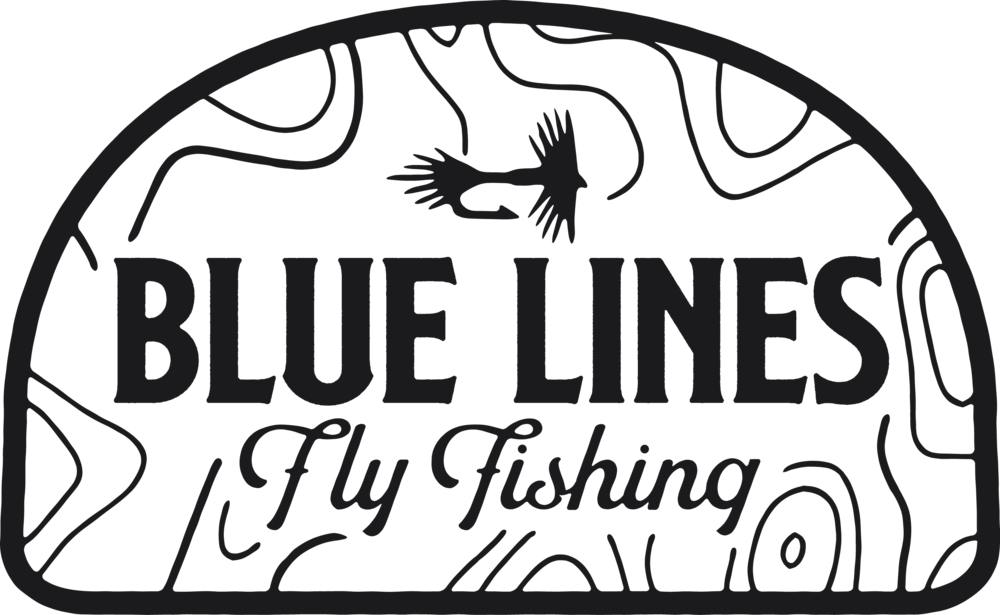By Jeffrey Stutsman
It’s the ass-end of January, and I longingly remember the sequences I use to tie blood knots, davey knots, and surgeons knots, but when I look down at my hands, dry and cracked from the cold winter air, they feel useless and palsied. They feel old. Quiet despair is seeping in at the corners of my eyes; dark tendrils of atrophy run so deep that I can feel the ache of boredom and disuse all the way in the center of my bones. Spring is just four months away, but at this rate I’ll have wasted away to a bitter shell before March. Even my distaste for tailwater nymphing can’t tamp down the burning ache in my stomach, so Mittens and I have resolved to drive to Pueblo.
We huddle over cups of coffee at work, beleaguered, wild-eyed, and desperate. Our coworkers probably think we are planning something illicit, but we’re past the point of caring. I’ve caught myself passionately advocating foam beetle patterns to nonplussed friends who hold no interest in fishing. Pervasive snow drifts have robbed us of our fortitude and we are going to find a wellspring at all costs.
By the time we near Pueblo, the morning sky is a pale blue that feels hopeful, if a bit faded, and barely hints at the storm front rolling in. Expecting cold, miserable weather, and an early afternoon midge hatch, we arrive at the river at a leisurely nine A.M. only to find that a warm morning has already stocked every bend with a small hive of anglers. All happy, all nymphing, all fishless, all white, all men. Homogeneous foot traffic like that will put down even the most incautious tailwater rainbow. But we have made the drive and neither of us forgot our rods, so we soldier to a recently vacated stretch and begin working through seams. We’re hoping that the dozen other fishers already to do so this morning, I don’t know, maybe missed one. I begin tying on a train of nymphs and remember that fly fishing is a pursuit almost entirely built on optimism. Or insanity. Probably both.
A gigantic, angular concrete dam rises in the distance like a post-apocalyptic nightmare. I let the current tension my line behind me and worry that this is what fishing will be like in 100 years, if there are any trout left after the rivers all dry up, or are sold off and privatized. I’m not sure which is more likely. And I try not to dwell. I try to focus on the press of the water, on the sunlight, on the occasional, fluttering midge alighting near enough for me to wonder how anything that small could lure a lethargic four-pound rainbow all the way to the surface. Then the loud corduroy swish of another angler’s waders shatters my carefully constructed monomania and I splash my flies down a little too hard. So much for that run. He nods hello and moves on, resolute. I take a few steps upstream and begin again. Roll, drift, hope. Roll, drift, hope.
We are surrounded by a chorus of broken kazoos. They sputter and honk intermittently, and I wish I knew enough about birds to identify more than two species of ducks. An incautious bufflehead (I looked it up when I got home) paddles lazy circles around me, lending an undeserved natural air to this artificial watershed. It feels dishonest. There are as many ducks out today as anglers (we are confined by the same dearth of options), and a handful of birds follow in my wake, sifting through the mud my boots have stirred up.
By the time the wind picks up enough to whip our lines out of the water and nearly liberate Mittens’ favorite hat, we’ve worked through a handful of bends and eddies. We moved through the usual tailwater flies: roll casting, changing depth, adding trailing nymphs, removing them, adding others back, roll casting some more. And caught no fish.
Aside from a couple of half-hearted bumps, in fact, we’ve barely seen evidence of the myriad non-native monsters purported to live below this dam. We might have fared better if either of us were competent nymphers, or cared to be, but one of the things Mittens and I have in common is a near-monastic dedication to the type of fly fishing that this, distinctly, isn’t. No matter. We came to the Arkansas to recharge batteries that merely require freshwater and the swish of a fly line through the air. So when we make our way back to the car, cold and fishless, having to talk loud over the crescendo of wind, we are both laughing.

